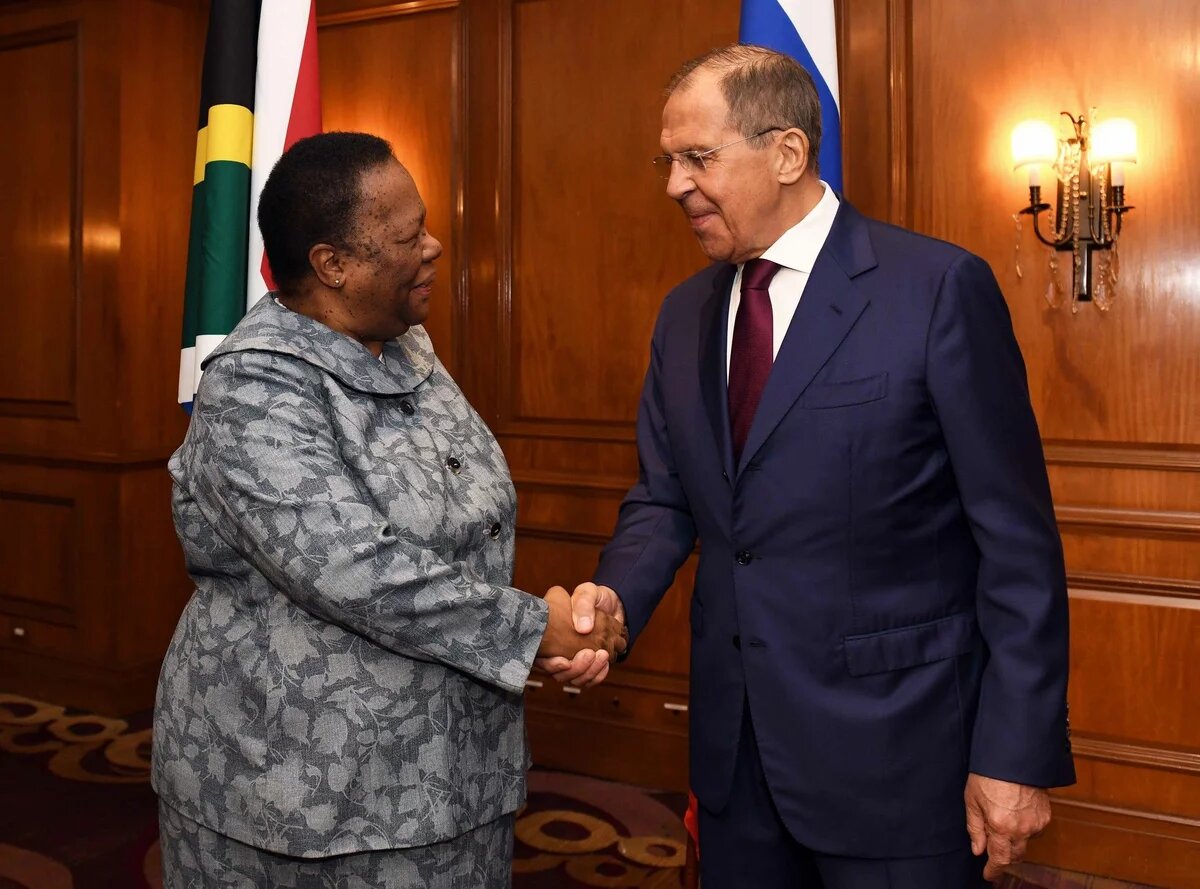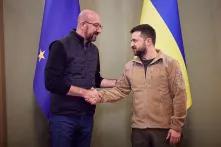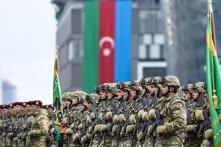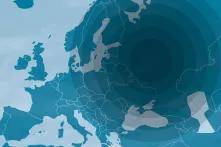The ‘Global South’ and ‘Global North’ diverge in how they view and relate to Russia’s invasion of Ukraine. Differences in means, risks and perceptions explain the gap but do not have to be an unsurmountable obstacle.

Russia’s unprovoked full-scale invasion of Ukraine rendered that the West and ‘the Rest’ view certain key global issues in different ways. Most countries of the world supported the March 2022 United Nations resolution condemning Russia’s invasion, with only a quarter of voting states not in favour of the resolution. However, all those either abstaining or voting against were countries in Africa, Latin America, the Middle East, South and Southeast Asia. This pattern has held in subsequent votes in April and October. More striking still is that few countries in those regions have imposed sanctions on Russia or given material support to Ukraine. A cynic would say that much of the international consensus on the war is a Western affair.
On a glance, the North-South divergence on the war is paradoxical. On the one hand, Russia’s invasion is a war of aggression. To subscribe to the United Nations Charter is to recognise the banning of such wars as the cornerstone of the post-1945 international order, to which most countries subscribe. Then, Russia invaded Ukraine to a large extent due to colonial and imperial legacies; Putin has even likened himself to Peter the Great and his XVIII century campaigns of territorial conquest. Many countries could identify on this point with Ukraine’s struggle. And indeed, most countries of the world condemned the war and have been actively calling for an end to hostilities. On the other hand, the policy response of the ‘Global South’ countries has been more muted. Only a few countries openly support Russia and only a couple offered direct military help to Kyiv. The UN votes condemning Russia’s invasion have not prevented some countries from hosting Russian diplomats and engaging with Moscow like before the war.
Attitudes across the populations in the non-West are similar. While most people sympathise with Ukraine, aggregated international polls point to slight majorities in the ‘Global South’ believing that the war is ‘none of their business’. In addition, even after February 2022, Russia has maintained a positive reputation throughout the developing world. In contrast, in the developed world, attitudes tend to favour direct support to Ukraine’s war of self-defence and Russia is seen in negative terms. The illegal annexation of Crimea, which marked the beginning of Russia’s invasion of Ukraine in 2014, has put Moscow’s reputation in the West on a trajectory of decline, with only few still holding positive views of the country.
Security dependency, Cold War legacy and propaganda
The most unabashedly pro-Russian views internationally have come from a few autocratic regimes and juntas. Without ever establishing formal alliances, Moscow has built a network of close partnerships throughout the world. This group primarily includes autocratic regimes such as the Maduro and Ortega regimes, the Mali and Myanmar juntas, and the Bashar al-Assad dictatorship in Syria. These regimes have come to depend on Moscow for their security, exchanging protection for diplomatic support. Yet, cases such as these account only for a minority of ‘Global South’ countries. The divergence between the West and the non-West is a broader phenomenon that encompasses long-standing Western partners, too, as many of these hold positive perceptions of Russia. How to explain this divergence in perceptions and actions between the West and the non-West? Thinking in mere terms of ‘neutrality’ does not add to our understanding of these countries’ motivations and outlook. Memory, propaganda, economic disparities, and geopolitical risks must be considered to answer this question.
Part of the positive disposition of the ‘Global South’ is a Cold War legacy. For many countries in Africa, Latin America, the Middle East, South and Southeast Asia, Moscow’s role is not remembered as unambiguously negative. Some countries in these regions gained independence from the West or liberation from dictatorship with a degree of Soviet and Socialist support. These memories of the Cold War are wedded to these countries’ histories but also to contemporary politics. Russia today instrumentalises these legacies and spins them to position itself as an opposition ‘leader’ against ‘unipolarity’. According to researcher Anton Shekhovtsov, Russia casts itself in the ‘Global South’ as a leader in the fight against ‘neo-colonialism’. In this sense, Russia’s war on Ukraine is also a propaganda war.
In a War of Narratives, Pragmatism prevails
The European Union has fought against Russian disinformation for years now. Russian and Russia-aligned media operating in Europe are not popular, with most of their European operations shut down due to sanctions since March 2022. Similar efforts have been seldom made outside of the West. In parallel to this lack of action, Russia has been engaging the media environment of the ‘Global South’, either through its state-controlled media or through influence campaigns. While Ukraine and the West are ‘winning’ the narrative war in Europe and North America, Russian narratives have a broader reach elsewhere.
Memory and propaganda do help but alone they do not suffice to explain ‘Global South’ attitudes towards the war. The media in non-Western countries does not predominantly promote Russian narratives. Recent research propose that media in these regions are taking a ‘domestic-centric’ approach, and are primarily concerned with the economic turbulence resulting from the war. A similar order of priorities can be attributed to the diplomacy of these countries. Several countries in Africa, Latin America, the Middle East, South and Southeast Asia prioritise their own interests and affirm their independence. As Indian External Affairs Minister Subrahmanyam Jainshankar said about his country’s Russia policy:
As the world’s third-largest consumer of oil and gas, a consumer where the levels of income are not very high, it is our fundamental obligation to ensure that the Indian consumer has the best possible access on the most advantageous terms to international markets.
One could dismiss this pragmatic attitude (called ‘active neutrality’ by some) as convenient or partial, but it reflects important disparities in the world and the risks brought by the war. According to a January 2022 International Monetary Fund update, the world economy was still reeling from the COVID19 pandemic and its accompanying supply chain complications. Emerging markets faced a slower economic recovery than their Western peers, partly due to unequal access to vaccines. Upon the start of the war, the developed world was better positioned to cope with the global economic uncertainty that followed. For many developing countries with large needs and small economies, global economic turbulence resulted in harsher famine. All throughout the world, acute food insecurity has doubled since 2019. For those countries with a large dependence on Russia for fuel, grains and fertilisers, the choice to decouple from Russia is hard, if not impossible. Despite its economic setbacks, Russia is among the largest economies in the world and is a leading player in several key international markets. In addition, the ‘Global South’ fears that the war could jeopardise development aid and economic cooperation.
Russia in the Global South: A new Global Confrontation
Russia’s invasion – coupled with a heightened US-China conflict – also risks bringing back Cold War dynamics. For many countries of the then-called ‘Third World’, the Cold War exacerbated their internal conflicts increasing the violence or enabling repressive dictatorships. For instance, Argentina’s 1970s ‘dirty war’ lasted nearly a decade and resulted in tens of thousands of casualties due to state terrorism by the anti-Communist Jorge Rafael Videla dictatorship. The Cold War did not necessarily create these regimes and the underlying conflicts they operated in, but it facilitated their brutality. Already today, Russia’s state-backed mercenaries in Central African Republic and Mali are among the deadliest fighting forces in those countries’ respective conflicts, disproportionately targeting civilian populations in each of them. There are many differences between twentieth century dictatorships and the junta regimes of today, but a new global confrontation creates new risks many countries are unprepared for. Even Morocco – a relatively wealthy country and one of the few non-Western countries to deliver military aid to Ukraine – avoids alienating Russia since it could result in Moscow supporting the kingdom’s Algerian rival. For many countries, avoiding a choice between East and West today – like before – is not just a choice of expediency but one of national security. In this sense, the response of the ‘Global South’ goes beyond ‘neutrality’ and represents a form of security-seeking behaviour.
Navigating Disparities: A Call for Diplomacy
Divergence in how the Cold War is remembered, propaganda, and disparities in means and risks are among the key factors that differentiate the response to the war by the ‘Global South’ and the ‘Global North’. The tendency to call for negotiations by the former is also rooted in these differences. The countries of the ‘Global South’ frequently do not have the means to project power internationally. Aside from a few large states, most developing countries struggle to build leverage in their bilateral relations. This challenge is only magnified in their relations with the rich countries of the ‘Global North’, including Russia. Therefore, developing countries tend to rely on persuasion rather than compellence, coercion or other forms of engagement. In short, the countries of the ‘Global South’ do not consider themselves capable to compel Russia to end its war, even though most would like the war to end. Not surprisingly then, most countries in the ‘Global South’ have not echoed the emerging ‘autocracies against democracies’ narrative sometimes featured in the West.
How should the West navigate this divergence? The above should suggest that messaging can only go so far; many countries in the ‘Global South’ have accused the West of ‘lecturing’. Ukraine’s own diplomacy – and its struggles – can offer guidance. Kyiv’s message has been that supporting Ukraine means to stand not by a ‘Western’ camp but by the UN Charter. Ukraine has expanded its diplomatic presence in Africa and Southeast Asia, and created a grain donation programme that has already delivered tens of thousands of tonnes to hunger-stricken East Africa. Ethiopia – a country that voted against the UN April resolution to suspend Russia from the Human Rights Council – will be among the beneficiaries. By addressing security needs and concerns over interrupted aid flows, Western support for this programme follows the right track. Russia’s war has evinced many disparities in the world, but effective diplomacy and statecraft can prevent it from making them wider.


